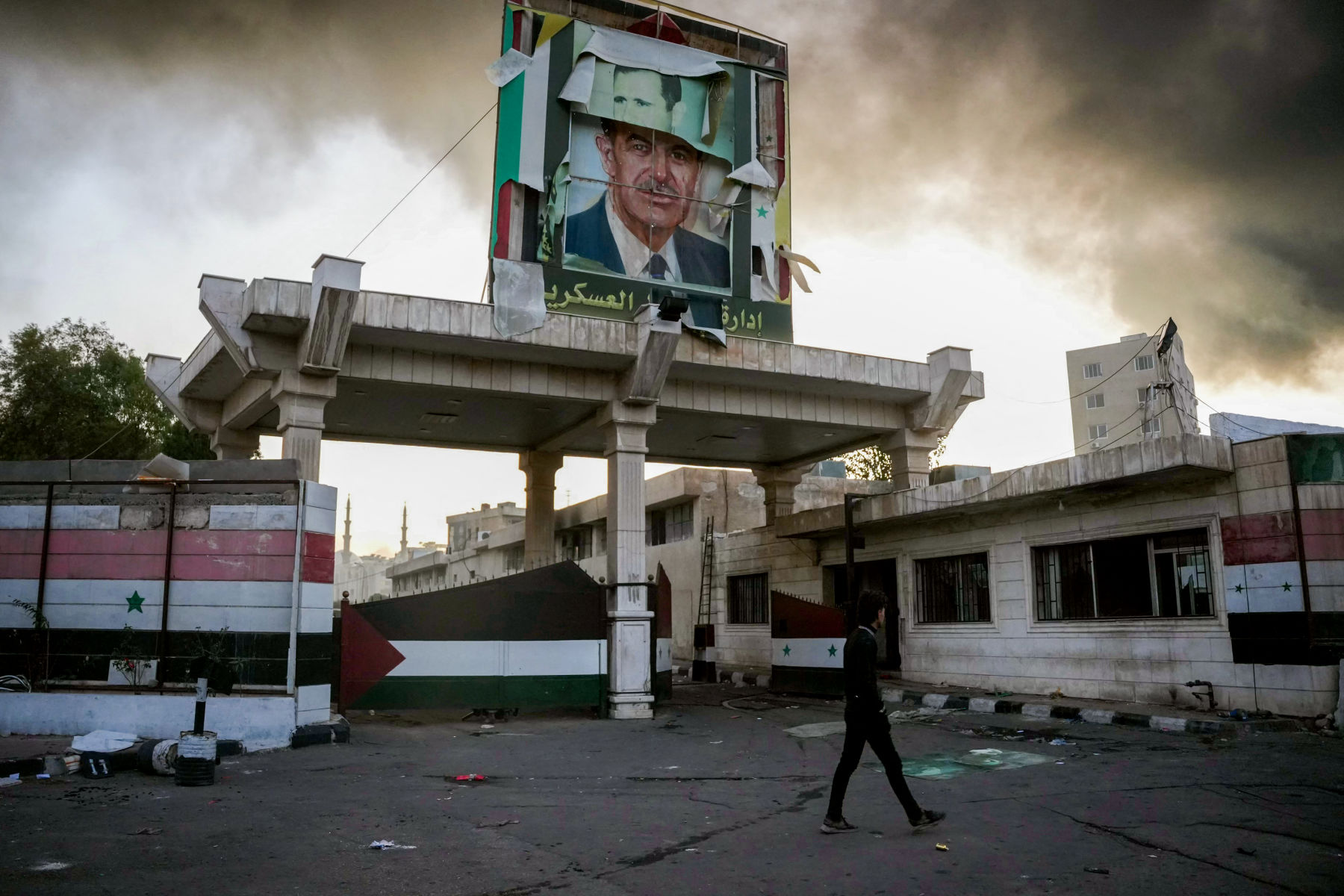Jordanian Court Currently Retrying Imprisoned Citizen and His Lawyer Following Torture Complaints
(Washington, D.C., January 4, 2024) – Jordanian authorities should investigate allegations that Jordanian security forces have tortured, sexually assaulted, and imprisoned Abed Elah al-Majali, a detained Jordanian citizen. Al-Majali recently finished serving a one-year prison sentence for alleged speech offenses based on allegations he made about USAID-related corruption, and is currently facing additional charges for the same "offenses," said Democracy for the Arab World Now (DAWN).
Jordan's Public Prosecutor in Amman, Dr. Thaer Nassar, has also charged al-Majali's lawyer, Firas al-Rousan, and activist Kameel al-Zoubi, for sharing al-Majali's allegations of torture and sexual assault.
"Whatever the merits of al-Majali's corruption allegations, the Jordanian government had no business prosecuting him and jailing him for expressing his opinions," said Jamal Al Tahat, DAWN's Senior Consultant. "Instead of investigating very serious allegations of torture and sexual assault, the Jordanian government appears more focused on silencing critical opinions like al-Majali's."
Arrest, Imprisonment and Trial
Jordanian security forces arrested Abed Elah al-Majali on the evening of August 13, 2022, from his home in Amman, Jordan, three days after he posted a video on his Facebook page on August 10, 2022, where he alleged the misuse of USAID funds by a Jordanian organization and claimed that "international inspectors" were coming to Jordan to investigate the matter.
On September 12, 2022, the Amman Magistrate Court sentenced al-Majali to one year in prison on speech-related charges,claiming that his corruption allegations were tantamount to "broadcasting false news to undermine the prestige of the state," "insulting a foreign country and its representatives," "inciting conflict and spreading division," "defaming of an official body," and "publishing defamatory and slandering information on the internet," pursuant to Articles 11 and 15 of Jordan's Cybercrime Law, and Articles 1/132, 122, 150, and 191 of Jordan's Penal Code.
Al-Majali filed an appeal the next day, on September 13, to the Amman Court of First Instance, arguing that the lower court denied him the right to present witnesses and witness testimony, respond to the charges against him in writing, and cross-examine the prosecution's witnesses. He also argued that the investigation leading to his arrest violated his right to privacy because Jordanian cybersecurity officers collected the information from his Facebook page without any warrant or reason. The appeals court denied his appeal on September 19, 2022 and upheld the Amman Magistrate Court's decision.
Jordanian authorities did not release al-Majali after he finished serving his one-year prison sentence on September 12, 2023. Instead, they brought new charges against him in May 2023, which according to an anonymous source DAWN interviewed on October 31, 2023, include "money laundering," "undermining the political regime," "participating in a terrorist network," "and disrupting relations with an Arab country." Al-Majali remains imprisoned in Marka prison in Amman.
"Not only have Jordanian authorities abused al-Majali and sentenced him to a full year in prison for bogus 'offenses' after an apparent unfair trial, they also seem intent on keeping him silent by prolonging his imprisonment," said Al Tahat. "This is the only explanation as to why the Jordanian authorities would bring vague, new charges against him based on the same claims for which a court had already sentenced him."
Jordanian authorities also have charged al-Majali's lawyer Firas al-Rousan, and an activist, Kameel al-Zoubi, for reporting al-Majali's allegations of torture and abuse on al-Zoubi's Facebook page. According to the case documents reviewed by DAWN, the Jordan Public Security Directorate has charged both men under Jordan's Cybercrime Law with "broadcasting false news" and "defaming an official body," submitting as evidence al-Zoubi's Facebook post on August 21, 2022, detailing the torture allegations al-Majali reported to al-Rousan. Their trial is currently ongoing.
The right to share content that might be deemed offensive and to publicly criticize officials is central to freedom of expression, as set out in the International Covenant on Civil and Political Rights, which Jordan has ratified. But the Jordanian authorities continue to punish speech deemed critical of the king, Jordanian government officials and institutions, foreign countries, and others. Even if al-Majali's claims about corruption are false, there is no justifiable legal basis for jailing anyone for non-violent speech. Under international human rights law, imprisonment is never an appropriate penalty for defamation. Civil damages are sufficient to redress harm to individuals' reputation and strike a better balance between protecting individual rights and fostering a healthy public discourse.
Torture and Assault
Al-Majali alleges that Jordanian security forces subjected him to severe torture, abuse and sexual assault during his detention. In an interview with DAWN on October 31, 2022, al-Rousan, al-Majali's lawyer, told DAWN that al-Majali described to him during a prison visit on August 20, 2022 how security forces tortured and ill-treated him after his arrest on the night of August 13 at an unknown detention center in Amman, before taking him to the prosecutor's office the next morning. Al-Majali told al-Rousan that security forces forced him to take his clothes off, photographed him naked, sexually assaulted him by inserting in his anus plastic or wooden objects, and urinated on him. Al-Rousan, al-Majali's lawyer, did not include these abuse allegations in his trial defense, but both al-Rousan and al-Zoubi are currently facing charges for discussing these abuse allegations publicly.
Al-Majali also reported physical threats against him and denial of medicine. He told al-Rousan that during the first week of his detention, security guards in the prison allowed one of the inmates to threaten him with a knife and denied him access to medication and medical treatment. A source close to al-Majali who prefers to remain anonymous for fear of retaliation by the Jordanian authorities, informed DAWN on November 13, 2023, that al-Majali submitted a complaint to the court that day, complaining that medical staff at the Marka prison intentionally gave him the wrong medication to cause him harm. The complaint is currently being reviewed by the court.
"It's shocking that Jordan's prosecutor is now punishing al-Majali's lawyer for raising torture allegations," said al-Tahat. "Jordan's public prosecution should ensure the immediate and impartial investigation into al-Majali's allegations of torture by government officials."
Corruption Allegations
Abdel Elah al-Majali worked for the Jordanian Royal Court for twenty years as a mail courier in the Royal Guards Brigade delivering the royal mail on his motorcycle across the country. After he left the army, in 2012 he became the president of one of the oldest cultural and athletic non-profit organizations in Jordan, "the Jordan Club" (Nadi Al Ordon), which was established in Amman in 1940. In 2018, the Jordan Club established a partnership with Jordan Heritage, a Jordanian non-profit organization founded in 2014 that promotes Jordanian heritage. According to al-Majali, the agreement provided that the Jordan Club would host Jordan Heritage activities, and Jordan Heritage used USAID funding to establish a traditional restaurant, the Jordan Heritage Restaurant, in West Amman.
Al-Majali claims Jordan Heritage was not qualified to receive such funding. According to a complaint filed on his behalf by an acquaintance to the U.S. Office of Inspector General on May 6, 2022 (the "USAID Complaint"), Jordan Heritage inappropriately used the USAID funds to open a "luxurious, five-star restaurant" on May 15, 2018, hosting prominent guests, such as former and current Jordanian ministers, executives of Jordanian governmental agencies, and members of the royal family. Al-Majali also said that he met and discussed the issue with unnamed USAID representatives in Jordan and raised it with the Jordanian General Intelligence Directorate and the Jordanian Integrity and Anti-Corruption Commission in 2019.
After not receiving any response from the two bodies, al-Majali continued to publicly raise the issue. He released a video on his Facebook page on August 10, 2022, addressed to American taxpayers to inform them that Jordan Heritage was looting U.S. financial aid to Jordan. Facebook removed al-Majali's video on two occasions, when al-Majali first posted it and again when his friend reposted it while al-Majali was in prison, apparently after someone claimed its ownership.
In recent years, Jordanian authorities have targeted political and anti-corruption activists for criticizing corruption by government and civil society organizations in Jordan. The authorities have relied on the Cybercrime Law to silence these activists and deny them their right to free expression. Many of the charges brought under the Cybercrime Law are broadly and vaguely worded, such as "insulting the King" or "undermining the political regime."
Jordan is the second largest recipient of U.S. aid, receiving $1.45 billion annually for the fiscal years 2023-2029, pursuant to a Memorandum of Understanding announced by the State Department. This includes $425 million in military assistance, at least $845 million in budget support, and $475 million in "direct cash transfer to the budget," effectively buttressing the monarchical dictatorship's acts without legal or constitutional constraints.





































